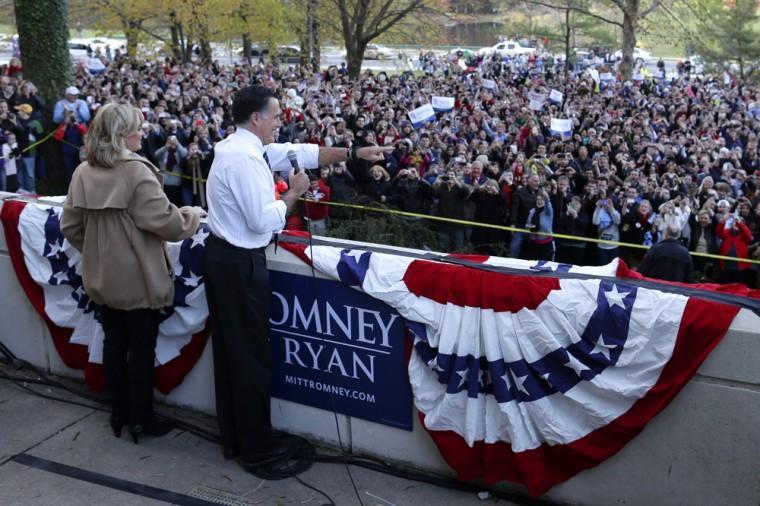Tangled in the complex political web of election issues sits education, which will have large financial implications for many students both during and after college graduation.
No matter what happens Nov. 6, the U.S. will end up with a president who graduated from Harvard Law School.
Each candidate has personally invested a hefty amount of time and dollars into higher education, helping to fuel heated debates on the subject at the forefront of many students’ minds.
President Obama says Republican presidential nominee Mitt Romney hasn’t prioritized education and that if the former Massachusetts governor is elected, he’ll apply heavy cuts to student loan funding, deepening the burden on recent college graduates buried in debt.
“I’m not going to cut education funding,” Romney responded in the first of three presidential debates, repeatedly asserting the importance of a proper education to lead a successful American life.
As governor, Romney implemented a state-funded, merit-based student aid program in Massachusetts. He also supports the idea that higher education should be available and affordable to everyone, though he hasn’t offered ways to make it happen.
Obama has maintained that higher education is one of his top priorities, evident by the fact that Pell Grant funding has yet to drop despite the urge by Congress to cut federal funding to the financial aid program.
As president, he passed legislation that makes it easier for students to pay back federal loans. He also played a role in increasing the number of Pell Grant recipients and extended the American Opportunity Tax Credit, which provides up to $2,500 of credit per student annually, for up to four years.
A possibility under either administration could be the elimination of subsidized student loans, for which the federal government pays the interest on student loans while the recipient is enrolled in college.
In any case, both tuition and student debt are soaring both nationally and locally, according to figures provided by the LSU Office of Budget & Planning and The National Center for Education Statistics.
In Louisiana, 46 percent of college students graduate with debt, averaging more than $22,000 per student, according to a survey of 2011 graduates by the Institute for College Access & Success.
That’s not so bad compared to the rest of the country.
The Bayou State has the fourth-lowest percentage of students graduating with debt. As for the amount of debt incurred, Louisiana ranks No. 35 in the U.S., meaning 34 states have higher average debt amounts per student.
Political science junior Jamal Reneau said he believes Obama has the better policies for higher education, but doesn’t think any will get passed through a Republican Congress.
“There’s really a stalemate,” Reneau said.
He won’t cast a vote in the presidential election because he feels powerless under the current Electoral College system.
English senior Daniel Brooks said he will vote for Obama, although he doesn’t believe either candidate has an idea to improve education as a whole.
“I get the feeling that Romney is not too much concerned with the plight of the overworked college student,” Brooks said, adding, “I think [Obama] really does have student debt on his mind.”
The issue hits close to home for Brooks because as a sixth-year senior, he said he will definitely graduate with debt.
Kinesiology sophomore Leslie Burch already cast her vote for Romney, but she said education “wasn’t the deciding factor.”
Other students, like first-time voter and mass communication sophomore Paige Fenerty, simply haven’t researched the issue.
“It probably should [matter], but I haven’t looked into it that much yet,” Fenerty said.






